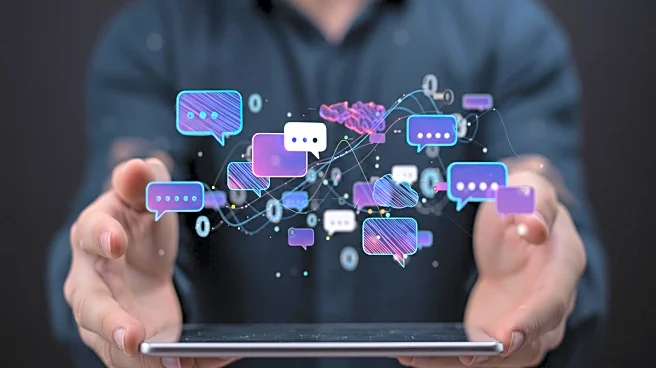What is the story about?
What's Happening?
OpenAI's recent update to its ChatGPT model, GPT-5, has led to significant changes in the digital relationships some users have formed with AI companions. The update, described as a 'significant step forward' by OpenAI CEO Sam Altman, has resulted in personality shifts in AI companions, making them less warm and engaging. Users have expressed dissatisfaction, noting that their digital partners now lack emotional depth. OpenAI has acknowledged the feedback and plans to allow users to revert to the previous model, GPT-4o, while working on making GPT-5 more user-friendly.
Why It's Important?
The backlash against the GPT-5 update highlights the growing emotional attachment some users have to AI companions, reflecting broader societal trends in human-technology interactions. As AI becomes more integrated into daily life, the emotional and psychological impacts of such technology are becoming more pronounced. This development raises questions about the ethical implications of AI in personal relationships and the responsibilities of tech companies in managing user expectations and experiences.
What's Next?
OpenAI's response to user feedback will be crucial in shaping the future of AI-human interactions. The company's efforts to adjust GPT-5's personality could set a precedent for how tech companies address user concerns about AI behavior. Additionally, this situation may prompt discussions about the regulation and ethical guidelines for AI development, particularly in contexts involving emotional and psychological well-being.
Beyond the Headlines
The incident underscores the potential for AI to influence human emotions and relationships, raising ethical questions about the role of technology in personal lives. It also highlights the divide between those who embrace AI companionship and those who view it as problematic, reflecting broader societal debates about the future of human-technology interactions.
















